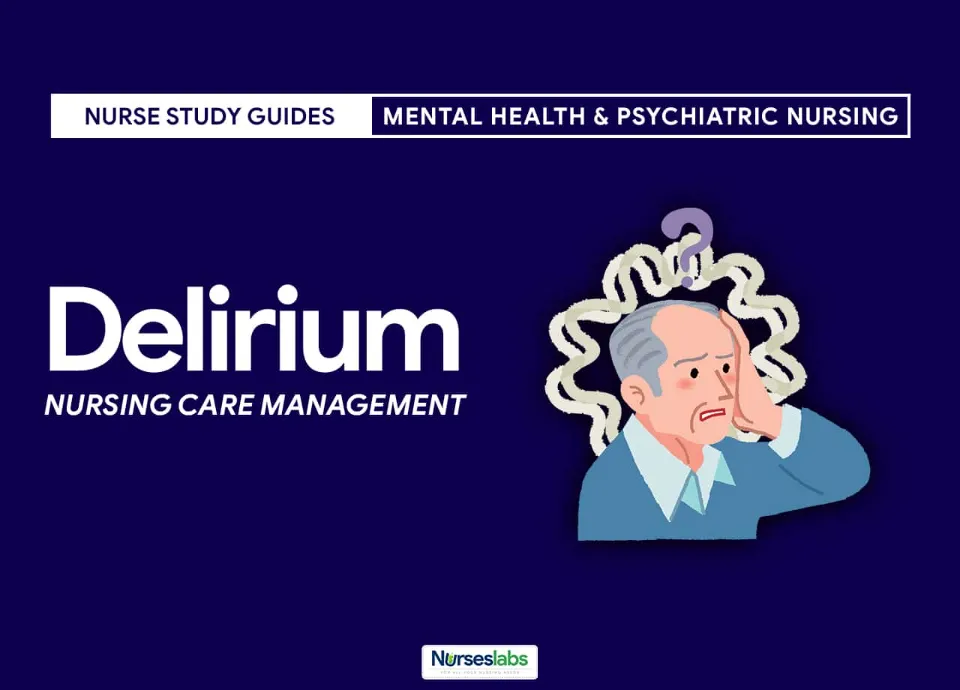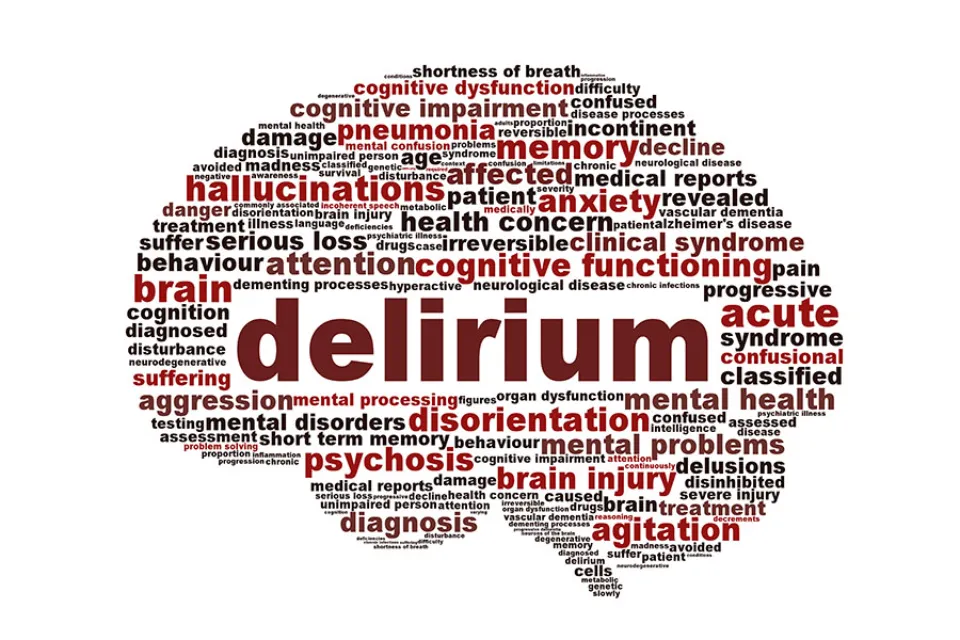The 16th Global Awareness Month for Delirium is in March. You might not have heard of delirium, but it affects about 2 in every 10 people admitted to hospital. Although it can be frightening, it can also be avoided and treated if you know what to look out for.
To see a familiar person suffering from delirium can be upsetting. Family, friends, and caregivers can provide assistance to those who are delirious.
What is Delirium?
Delirium is a sudden change in one’s thoughts and behaviors. People with delirium can’t pay attention to what’s going on around them, and their thinking isn’t organized. The delirious person, their family, caregivers, and friends may find this frightening.
Delirium may develop over several days or over a few hours. The signs may appear and disappear. Delirium is frequently brought on by a disease or injury.
Delirium is not the same as dementia. In dementia, confusion slowly worsens over time and remains unrelieved. Delirium happens suddenly and usually gets better with treatment.

Symptoms of Delirium
One or more of these symptoms may be present in a delirium patient. They may:
- Seem confused.
- Feel agitated and restless.
- easily irritated or bothered.
- Seem troubled.
- Think someone is trying to harm you; be paranoid.
- Be more vigilant than usual.
- Have trouble staying awake.
- Look or act depressed.
- not coherent when they speak.
- See or hear things that aren’t there.
- Contrast their days and nights.
- Be forgetful.
- focus is a problem.
- Not know where they are.
Call the person’s doctor or nurse right away if they seem confused or show any signs of delirium.
Causes of Delirium
Delirium can be brought on by a variety of factors. Some common causes are:
- Infection
- Side effects of medications or a change in medication
- Recent surgery with anesthesia (medication that makes you sleep)
- Chronic illness that’s getting worse. A long-lasting illness that frequently doesn’t fully heal, like chronic kidney or liver disease, is referred to as a chronic illness.
- Low or high levels of sodium, potassium, calcium, or magnesium in their blood
- Dehydration (having too little water in your body)
- Not eating enough, or not getting enough nutrients from food over a long period of time
- Low or high blood sugar
- Constipation (having fewer bowel movements (poop) than usual)
- Not being able to urinate (pee)
- Pain
- Drinking too much alcohol or if someone suddenly stops drinking alcohol
- withdrawal from benzodiazepines or other sedative-hypnotic drugs (medications that make you feel relaxed). For instance, common benzodiazepines include lorazepam (Ativan®), alprazolam (Xanax®), and diazepam (Valium®). Not getting enough vitamin B1 (thiamine)
Help Someone With Delirium
Loved ones can play a significant role in preventing and addressing delirium for someone in a medical setting. Keeping your loved one involved and connected to their environment is the main objective.
Things you can do include:

Visit Them Regularly
Social interactions with loved ones, including family, friends, and relatives, can be extremely beneficial in preventing delirium. Make sure to adhere to the visiting policies if your loved one is in a hospital or other healthcare facility. For those who are unable to attend in person, phone or video calls can be helpful.
Engage With Them
Join your loved one in activities, if you can. Playing card and board games, solving puzzles, and watching TV or listening to the radio can all be enjoyable joint activities.
Talk Patiently
A loved one can stay focused with help from conversations that go beyond simple small talk. Talk about topics that interest them or that will help them recall information. Talk to them as adults and refrain from speaking to them in a childlike manner.
Decorate and Provide Familiar Objects
Setting up images that your loved one is familiar with and feels a connection to can be a useful way to keep them engaged with their surroundings. Familiar items, like a treasured blanket or a vase with their favorite kind of flowers, may also help.
Mental Exercise
Keeping your brain aware of the date, time and situation, especially with calendars and clocks, can help reduce your risk of delirium. With your care provider’s guidance, members of your family and close friends can help with mental stimulation and exercise.
Preventing Falls at Home
After delirium, a person may still be at an increased risk of falling when they leave the hospital. You can support them by making any changes in the home that they need to stay safe. Try to make sure that:
- You remove any hazards in the home
- They have a clear pathway to the bathroom
- Their glasses are nearby
- Any usual walking aids, such as sticks, zimmer frames or trolleys, are within reach
Medications
There are no drugs that specifically address delirium. Instead, medications treat underlying causes or specific delirium symptoms. In light of the contributing factors and your symptoms, the treatments can therefore vary greatly. Healthcare providers may consider antipsychotic medications for treating hyperactive delirium because they reduce agitation and combativeness.
In general, a healthcare provider is the best person to tell you about the possible treatments they recommend (if you have a loved one who has delirium) or about the treatments you received (if you had delirium previously). They’ll give you the information that applies to your situation the most.
Summary
You can help someone you know feel more in control and calm if they are experiencing delirium by taking a few easy steps. Stay calm; talk to them in short, simple sentences and check that they have understood you, repeating things if necessary. Remind them of the situation and express your confidence in their abilities. It can be very beneficial to have a familiar face nearby or even some items from home.
FAQs
What is the Most Helpful Treatment for Delirium?
Antipsychotics: Antipsychotics are generally regarded as the drug of preference in the treatment of delirium.
How Long Does It Take for Delirium to Resolve?
Delirium occasionally goes away in a few hours to a few days. Sometimes it takes weeks or months to finish up. This makes it crucial for caregivers to talk with a healthcare professional about the patient’s immediate and long-term needs.



